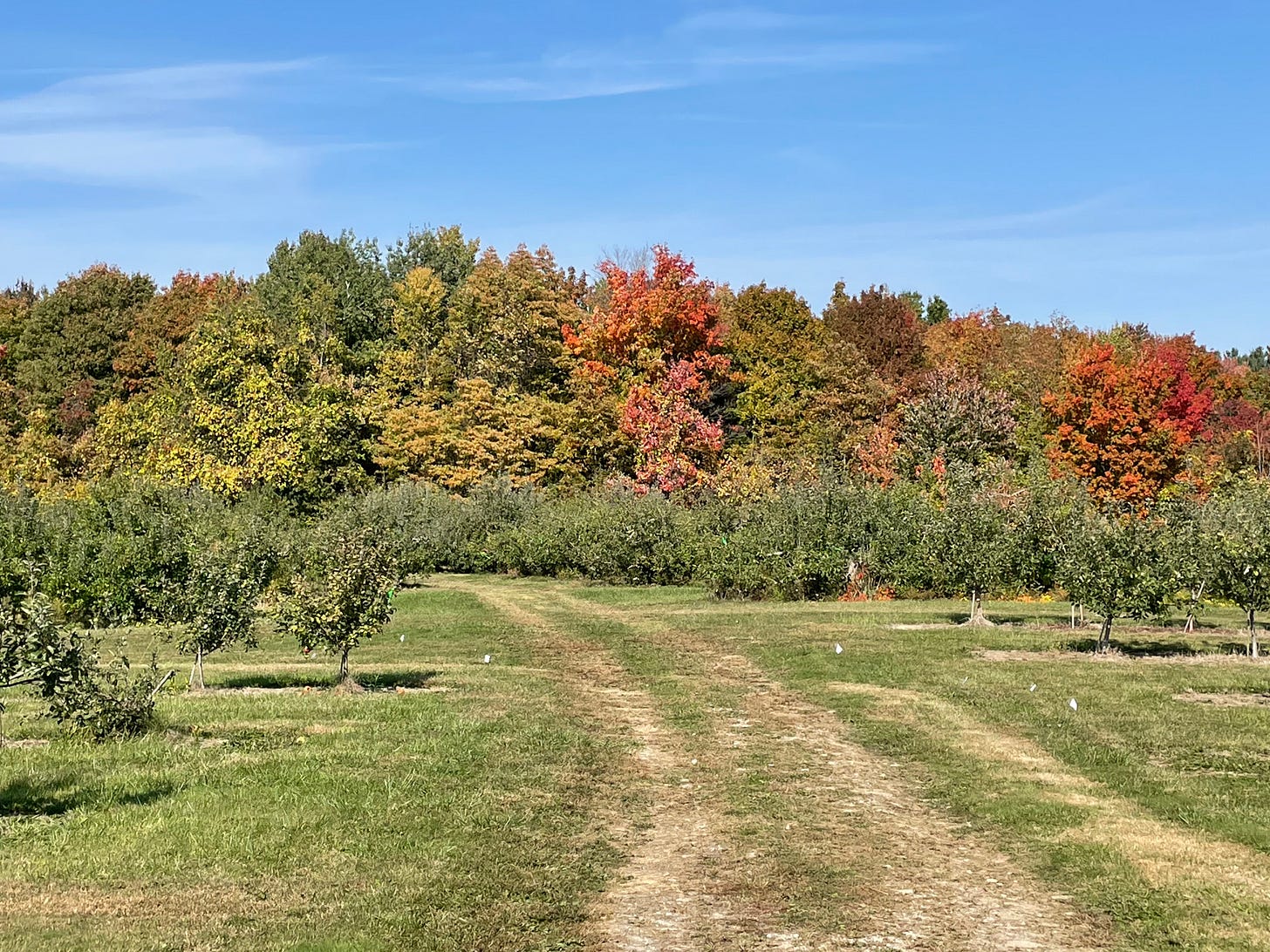Autumn Day
Analysis and Comment on Rainer Maria Rilke's Poem
The author: Rainer Maria Rilke, an Austrian poet and novelist, writing in the German language. This poem is from a collection called, “The Selected Poetry of Rainer Maria Rilke,” edited and translated by Stephen Mitchell.
In my analysis, I came across several people who say this poem is one of their favorites. This one stood out to me among many with its initial pleasantness, yet wandering into warning and lament. The theme of the poem is one of darkness and loneliness if one does not make the most of summer or autumn. Here is the poem in full, along with my analysis and comment below.
Autumn Day by Rainer Maria Rilke Lord: it is time. The huge summer has gone by. Now overlap the sundials with your shadows, and on the meadows let the wind go free. Command the fruits to swell on tree and vine; grant them a few more warm transparent days, urge them on to fulfillment then, and press the final sweetness into the heavy wine. Whoever has no house now, will never have one. whoever is alone will stay alone, will sit, read, write long letters through the evening, and wander on the boulevards, up and down, restlessly, while the dry leaves are blowing.
Translation is poetry is difficult; a single word choice can make or break a poem. Often, translations lose the sound, rhythm, and rhyme of the original. I cannot critique the actual translation of words. But hearing the poem read in the original German shows much is lost in translation. I would suggest first hearing the poem read in the original German to hear the beauty of the rhythm and rhyme.
The poem begins with a cry to the “Lord” capable of bringing change to the seasons, and “commanding” fruit to grow on tree and vine. The summer was “huge” and is over. Autumn has begun. “Now overlap the sundials with your shadows…” The simplest sundials are constructed of a circular disk with lines divided into 24 spaces. During the summer, the shadow is cast in the top half of the circle. The winter, the bottom half. During the equinoxes, the shadow is cast on both sides of the sundial, in a sense, overlapping the circles. As the season changes, so does the weather. Autumn is windier than the other seasons. Also, as the leaves fall from the trees, the wind can move more freely, unhindered, “on the meadows.”
The second stanza continues the cry, asking the Lord to “command the fruits to swell on tree and vine,” getting ready for the harvest. What is needed is a few more “warm transparent days,” cloudless skies filled with sunshine to coddle the fruit to grow just a little more. Then comes the harvest, and the “press,” that will squeeze the fruit juice into vats to be made into sweat, “heavy,” full-bodied wine.
The final stanza is a lament, or perhaps a warning. “Whoever has no house now will never have one.” Perhaps a better rendition for “Haus” is home in this line. The homeless I’ve encountered are lonely, wondering the streets restless, with nothing to do but scroll social media or play games on their phones for hours and hours; the phone we now use for reading and writing “letters.” Restlessness is an understatement – the rustling of leaves is an omen for the coming harsh winter weather.
Could this last stanza be a warning, much like the warnings given in the wisdom literature of the Bible? “Go to the ant, O sluggard…she prepares her bread in summer and gathers her food in harvest.”1
Those who have found no home during the “huge” summer and have not found companions with whom to harvest with and press fruit for wine will still be homeless, and still be lonely. They will miss the coming festivities when the wine is ready, and feasting will begin without them. Instead, they will wonder the streets “dry” as if leaves blown about by the wind.
The last stanza reminds me of a verse in John’s Apocalypse: “Let the evildoer still do evil, and the filthy still be filthy, and the righteous still do right, and the holy still be holy.”2 One early Church Father says of this verse:
“He is not urging or commanding anyone to do that which is wicked or to defile themselves. Rather, he is saying that the short time remaining gives humankind yet an opportunity. Therefore, let each person do that which is pleasing to them, and let them use their free will as they choose, whether for that which is evil or for that which is good.”3
If the stanza is a warning, there is still time to find a home, to find companions, before the winter comes.
Or perhaps the last stanza is an exhortation to the reader. Look out into the streets and see the homeless: restless and lonely. Open wide your doors and lengthen your tables to welcome them into your homes and churches. Your summer was “huge”, your harvest is “swell” and more than enough.
How about you? How does this poem speak to you?
Proverbs 6:6–11, ESV
Revelation 22:11
William C. Weinrich, Ed., Revelation, Ancient Christian Commentary on Scripture, (Downers Grove, IL: InterVarsity Press, 2005), 399.


